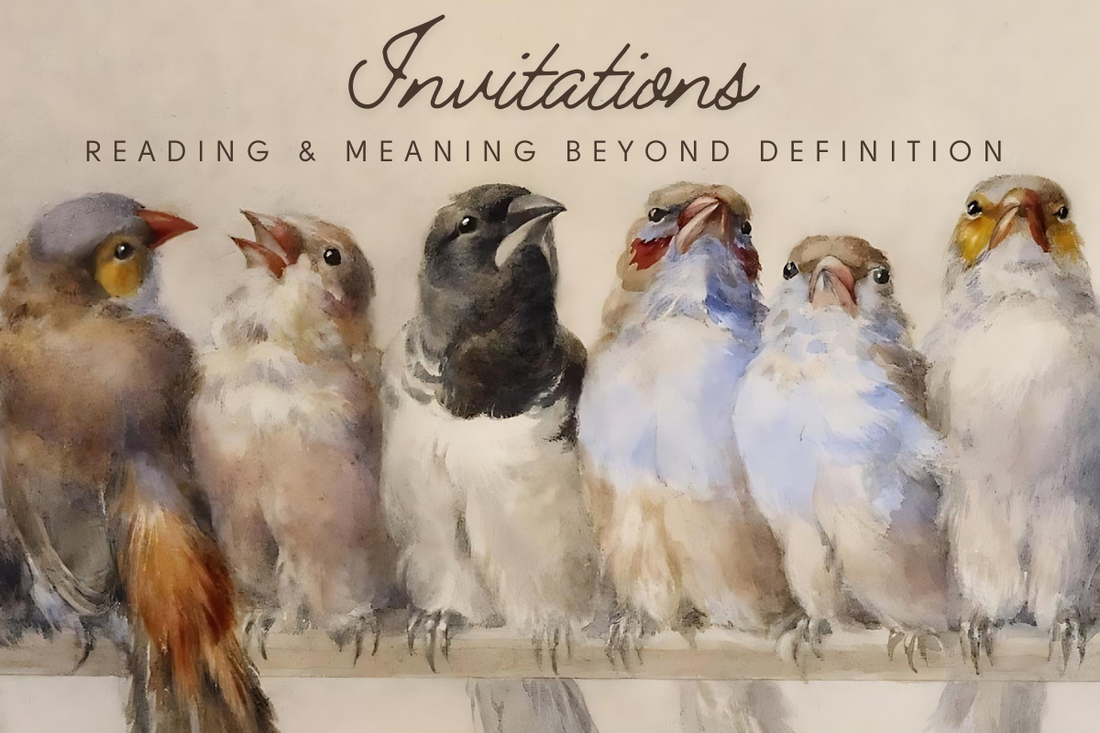
Nostalgia: A Path to Connection, and Ideally, Transcendence
Share
In our quest to support people living with dementia, we often overlook one of the most powerful tools at our disposal: nostalgia. Not as a mere reminiscence technique, but as a gateway to well-being and personhood. As we shift our focus from managing behaviors to enhancing lives, nostalgia emerges as a critical component of a more humane and effective approach to dementia care.
When my mother-in-law began her walk with dementia, I found myself questioning the traditional narrative of loss and decline. Instead, inspired by the work of progressive thinkers in dementia care, I began to explore how we could use art and literature to create moments of connection, joy, and self-expression. I sought a round-up of insight and resources to help me understand how to help my mother in law and others to re-engage and in doing so, more peacefully cope— and transcend.
The bespoke art and literature books we created together became more than memory aids. They were catalysts for rich conversations, vehicles for self-expression, and affirmations of her enduring personhood. This approach aligns with what Dr. Constantine Sedikides from the University of Southampton calls "identity continuity," but I prefer to think of it as honoring the whole person, past and present.
Too often, we fall into the trap of seeing people living with dementia through the lens of their diagnosis. But when we engage in shared exploration of art and literature, we create opportunities for genuine connection. Dr. Clay Routledge from North Dakota State University speaks of nostalgia increasing social connectedness. In practice, this means seeing beyond the symptoms to the person who still has the capacity for joy, insight, and meaningful relationships.
Loneliness and helplessness are pervasive challenges in dementia care. Dr. Tim Wildschut from the University of Southampton has noted how nostalgia can counteract these feelings. But it's not just about recalling happy memories. It's about using those memories as a springboard for present-moment engagement and a sense of ongoing purpose.
In our society, we often discount the wisdom and contributions of elders, especially those living with dementia. But as Dr. Susan Bluck at the University of Florida suggests, life review through art and literature can help individuals find meaning in their life story. This process isn't just beneficial for the individual; it enriches our entire community by preserving diverse perspectives and experiences.
Cultural preservation, as highlighted by Dr. Qi Wang from Cornell University, takes on new significance in dementia care. By engaging with art and literature that resonates with an individual's cultural background, we're not just evoking memories. We're affirming identity and challenging the narrative that dementia erases who we are.
The idea that cognitive stimulation might help maintain function, as suggested by Dr. Antonio Terracciano from Florida State University, is intriguing. However, I believe the real value lies in the joy and sense of mastery that comes from engaging with art and ideas. It's not about chasing cognitive improvement, but about living fully in the present moment.
Dr. Krystine Batcho from Le Moyne College points out that nostalgia can be a powerful coping mechanism. In our experience, engaging with meaningful art and literature provides a sense of continuity and comfort. It's a reminder that while dementia changes many things, it doesn't erase our capacity for beauty, emotion, and connection.
The boost in self-esteem we've observed aligns with findings from Dr. Wijnand A. P. van Tilburg at the University of Essex. But I believe it goes deeper than nostalgia reinforcing social value. When we create opportunities for people living with dementia to share their interpretations of art or their favorite passages of literature, we're acknowledging their ongoing capacity to think, feel, and contribute.
Dr. Amanda Phelan from University College Dublin emphasizes how understanding a person's life story can enhance person-centered care. This understanding is crucial, but it's only the beginning. True person-centered care means continually creating opportunities for self-expression and meaningful engagement, recognizing that personhood is not static but continually evolving.
The late Dr. Robert N. Butler from Mount Sinai School of Medicine believed in the importance of life review for older adults. I would argue that this process is not just about looking back, but about integrating past experiences with present realities to create a continuum of meaning and identity.
Dr. Claire Hooker at the University of Sydney focuses on how nostalgia can provide a sense of continuity and identity for those facing cognitive changes. This aligns with our experience of using art and literature to tap into enduring aspects of personality and passion. It's a powerful reminder that cognitive changes do not define the whole person.
In conclusion, nostalgia, when approached through the lens of art and literature, offers us a path to transcend the limitations of traditional dementia care. It allows us to move beyond symptom management to create genuine opportunities for well-being, self-expression, and community integration.
To care partners, I say this: your role is not to preserve the past, but to co-create a meaningful present. To people living with dementia: your perspectives, your creativity, your essence continues to enrich our world. Together, we can challenge the stigma of dementia and create communities where everyone, regardless of cognitive ability, can thrive.
We can move forward with the understanding that every conversation sparked by a painting, every emotion evoked by a poem, is an affirmation of our shared humanity. In this way, we can transform dementia care from a narrative of decline to one of ongoing growth, connection, and possibility.

